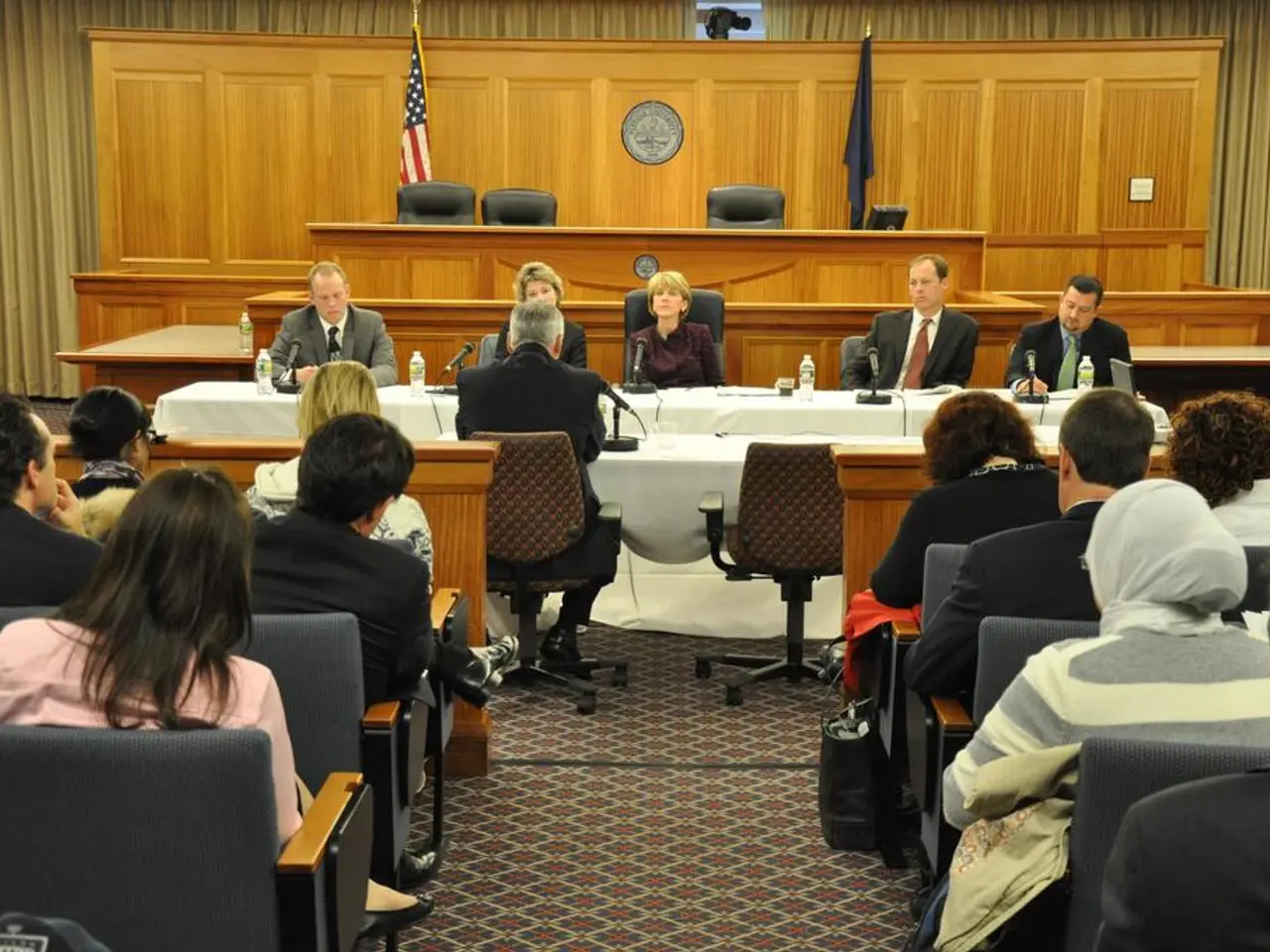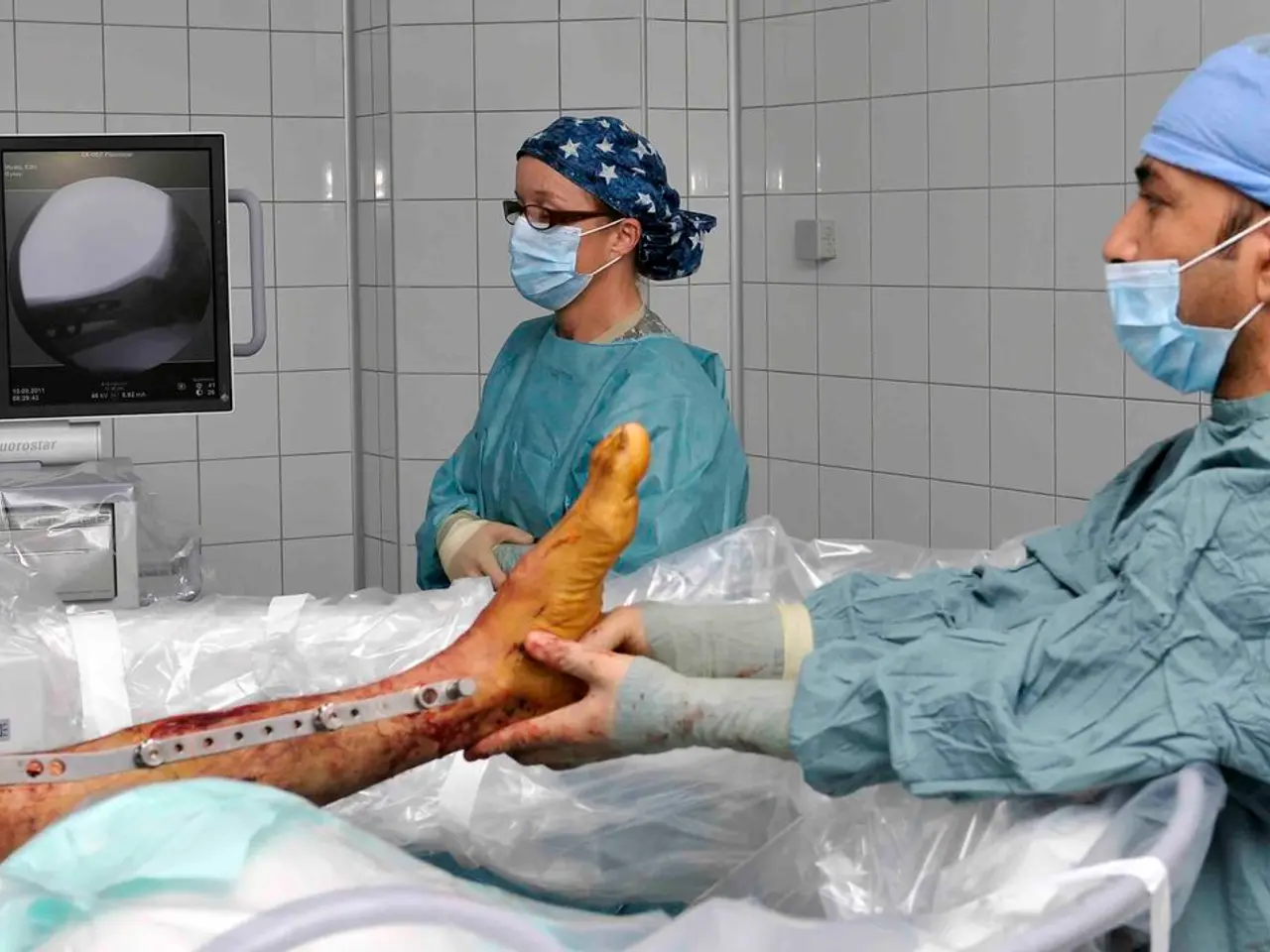Government Pension Level Stability: Bas Proposes Law to Cabinet for Consideration
Germany Proposes Pension and Wage Security Bills
In a significant move, Germany's Social Minister, Barbel Bas, has presented a pension bill to the cabinet, aiming for its passage by the Bundestag by the end of the year. The key objective of the bill is to extend the current pension "holding line" (Haltelinie), guaranteeing a retirement benefit level of 48% of net income, until 2031.
The bill also proposes raising pension contributions by 0.2 percentage points from 18.6% to 18.8%, split equally between employers and employees, from 2027. Additionally, it aims to increase the "mother's pension" (Mütterrente) benefit by about €20 per month per child for parents with children born before 1992, effective January 1, 2027. These changes are estimated to cost approximately €5 billion annually.
Furthermore, the bill seeks to expand tax incentives for occupational pensions, particularly for low-income employees, by raising the tax-free maximum premium contributions from €960 to €1,200 per year and increasing subsidies for occupational pension schemes targeted at low earners.
Regarding the wage security law (Lohnsicherungsgesetz), while details are less explicit, the proposed law would obligate companies receiving public orders of 50,000 euros or more from the federal government to comply with collective agreement conditions for their employees. However, orders from the Bundeswehr are excluded from this law.
The controversy surrounding the wage security law centres on Germany’s struggle to balance pension system sustainability amid demographic pressures. The administration’s reluctance or delay to implement stronger measures such as raising the retirement age beyond 67 has sparked debate. Economy Minister Katherina Reiche has emphasized the need for working longer and more, which has provoked public and political discussion on fairness, economic impact, and social security adequacy given the demographic realities.
In summary, the pension bill reflects a balance of maintaining entitlements with moderate contribution increases, while the wage security law-related debate focuses on demographic challenges and reform pacing, sparking contention over labor expectations and social equity.
Other notable events include a fire at the Uentroper harbor in Hamm, involving a clubhouse, and the Goethestraße in Hamm now being free again. Hamm Zoo is also involved in the feeding of pets in Denmark. The federal government is also planning to relieve gas customers of the costs of the gas storage surcharge and is looking to enable underground CO2 storage. Lastly, Vice-Chancellor Lars Klingbeil (SPD) is introducing a bill to combat black work and tax evasion, with a focus on federal funds for the financing of the ticket.
The pension bill, part of Germany's policy-and-legislation, proposes extensions and modifications to secure pension benefits, while the politics of the wage security law (Lohnsicherungsgesetz) revolve around debates on demographic challenges and reform pacing. General news also includes discussions on other topics such as fires, zoo involvement in pet feeding, gas cost relief, and plans to combat black work and tax evasion.





